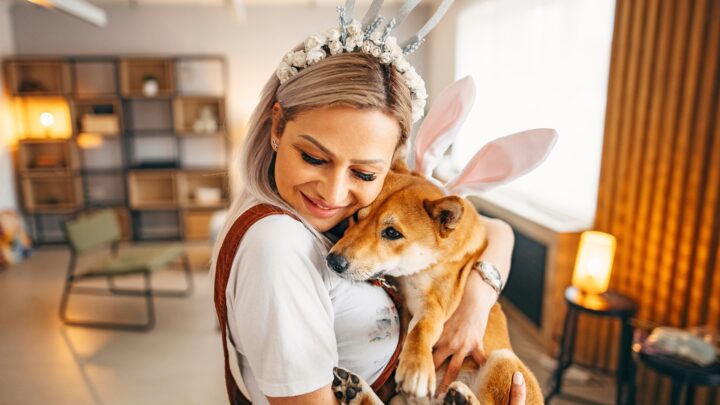Eating chocolate might bring you a lot of joy, but it could be the source of heartache instead if your cat or dog finds your supply of Easter eggs. Unfortunately, chocolate consumption is poisonous for pets and can even be fatal. Whether your dog is in its stroppy teenager phase, or has seen its fair share of Easters, it’s still important to be on high alert through this holiday season, in case you come to find your dog ate your chocolate.
Veterinary director Dr Michael Yazbeck says he tends to get more dogs than cats suffering chocolate poisoning since felines are more discerning about what they’ll nibble on.
“Most of the cases we see are dogs that have gotten into a stash of chocolate and been sneaky about it,” he explains. “The only reason we know about it is because the wrappers are there – the evidence is left out – or in unfortunate cases, when they’re starting to show signs of chocolate toxicity.”
There are two compounds in chocolate that wreak havoc on dog and cat bodies, particularly heart function – theobromine and caffeine.
“The more concentrated or dark the chocolate is, the worse it is,” says Michael. “So dark chocolate is far more toxic than white or milk chocolate.”
With lots of sweet treats around at this time of year, it’s essential that pet owners keep them out of paw’s reach. It’s also important to know what to do if you discover that your furry friend has been eating chocolate.
How much chocolate is dangerous for dogs?
Michael says treating chocolate toxicity is dose-dependent – a little chocolate might not be fatal, but you should still get your pet treated, even if they’re not showing symptoms of poisoning.
“The safest option is to go to the vet because there may be things happening clinically in the dog’s body that you’re unaware of – on a heart level, for example, like changes in rhythm, changes in temperature and neurologically.”
The vet will need to know what type of chocolate your pet ate and approximately how much.
“If you’ve got the wrapper, bring that in and hopefully we can assess the amount – so if you know there was a full block and half of it’s missing, that’s really valuable information,” explains Michael. “Using that information and the body weight of the pet, we can work out how likely it is to cause a problem.”

What happens if a dog eats chocolate?
Sometimes your dog or cat might have consumed chocolate without you finding the evidence, so if you notice the following symptoms in your pet, get them to a vet as soon as possible – they may be suffering from chocolate poisoning.
- Vomiting
- Diarrhoea
- Behaviour change, such as distress or restlessness
- Very fast or very slow heartbeat
- Fever
- Higher levels of thirst
- Muscle tremors
- Hyper-excitability
- Seizures (in very serious cases)
If it’s after hours or a public holiday, don’t wait for your vet clinic to reopen. Michael advises locating your nearest emergency animal hospital and calling them to let them know you’re on your way. “Your best friend is time and getting to the vet as soon as possible,” he says.



.jpg)